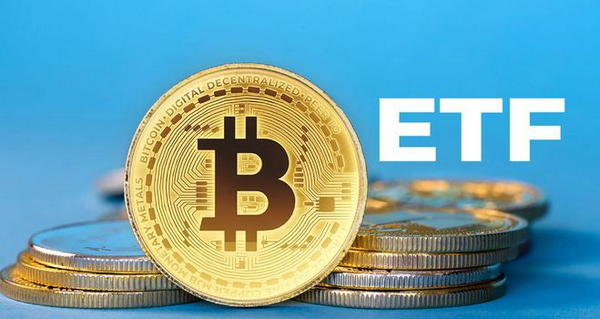-
 Bitcoin
Bitcoin $83,918.5249
-1.85% -
 Ethereum
Ethereum $1,581.2485
-2.99% -
 Tether USDt
Tether USDt $1.0000
0.01% -
 XRP
XRP $2.0743
-3.55% -
 BNB
BNB $579.5840
-1.37% -
 Solana
Solana $125.4799
-4.99% -
 USDC
USDC $1.0000
0.01% -
 TRON
TRON $0.2542
2.42% -
 Dogecoin
Dogecoin $0.1532
-3.78% -
 Cardano
Cardano $0.6058
-4.94% -
 UNUS SED LEO
UNUS SED LEO $9.3964
-0.35% -
 Chainlink
Chainlink $12.1811
-3.14% -
 Avalanche
Avalanche $18.8831
-5.08% -
 Stellar
Stellar $0.2339
-3.14% -
 Toncoin
Toncoin $2.8495
-4.08% -
 Shiba Inu
Shiba Inu $0.0...01162
-2.50% -
 Sui
Sui $2.0764
-5.19% -
 Hedera
Hedera $0.1576
-4.85% -
 Bitcoin Cash
Bitcoin Cash $320.4674
-3.22% -
 Litecoin
Litecoin $75.2096
-2.87% -
 Polkadot
Polkadot $3.5156
-3.68% -
 Dai
Dai $1.0002
0.02% -
 Bitget Token
Bitget Token $4.2993
-0.38% -
 Hyperliquid
Hyperliquid $15.1677
-6.18% -
 Ethena USDe
Ethena USDe $0.9993
0.02% -
 Pi
Pi $0.6229
-7.94% -
 Monero
Monero $217.5469
1.67% -
 Uniswap
Uniswap $5.1595
-4.11% -
 OKB
OKB $52.2699
-0.13% -
 Pepe
Pepe $0.0...07109
-2.67%
Does the Bitcoin ETF trade 24 hours a day?
The Bitcoin ETF follows a traditional trading schedule, operating during regular New York Stock Exchange hours and a limited post-trading session.
Oct 12, 2024 at 01:11 pm

Does the Bitcoin ETF Trade 24 Hours a Day?
No, the Bitcoin ETF does not trade 24 hours a day.
1. Regular Trading Hours:
The Bitcoin ETF trades during the regular trading hours of the New York Stock Exchange (NYSE), which are:
- Monday-Friday from 9:30 AM to 4:00 PM Eastern Time (ET)
2. Post-Trading Session:
- After the regular trading hours, there is a post-trading session from 4:05 PM to 8:00 PM ET.
- During this session, limited trading may occur, but liquidity is typically lower than during regular hours.
3. Closed on Weekends and Holidays:
- The Bitcoin ETF does not trade on weekends or on days designated as holidays by the NYSE.
4. Factors Affecting Trading Availability:
- Trading may be suspended or halted if there are significant market events, technical issues, or regulatory actions.
5. Liquidity Considerations:
- Liquidity, or the ease of buying and selling the ETF, may vary throughout the trading day and outside of regular trading hours.
- After-hours trading may have lower liquidity, which could result in wider bid-ask spreads and higher execution costs.
Conclusion:
The Bitcoin ETF follows a traditional trading schedule and does not trade 24 hours a day. It trades during regular NYSE hours and has a limited post-trading session. Liquidity may be lower outside of regular trading hours, which should be considered when making trading decisions.
Disclaimer:info@kdj.com
The information provided is not trading advice. kdj.com does not assume any responsibility for any investments made based on the information provided in this article. Cryptocurrencies are highly volatile and it is highly recommended that you invest with caution after thorough research!
If you believe that the content used on this website infringes your copyright, please contact us immediately (info@kdj.com) and we will delete it promptly.
- 5 Altcoins That Will Explode This Week
- 2025-04-16 19:25:13
- Shiba Inu (SHIB) Remains the #2 Memecoin on CoinMarketCap, Trailing Only Dogecoin (DOGE)
- 2025-04-16 19:25:13
- 4 Cryptos Shaking Up the Markets and Giving Users Real Utility
- 2025-04-16 19:20:12
- Toobit Expands Its Services by Partnering with NovaMeme, a Cutting-Edge IDO-to-Market Decentralized Finance (DeFi) Fundraising Platform
- 2025-04-16 19:20:12
- Bitcoin (BTC), Pi Network's Pi Coin, and PepeX (PEPX) Are Experiencing a Rebound After US President Donald Trump's Tariff-Induced Market Plunge
- 2025-04-16 19:15:13
- 3 Under-the-Radar Cryptos That Could 10x or 100x
- 2025-04-16 19:15:13
Related knowledge

What is the difference in returns between long-term holding of a Bitcoin ETF and holding Bitcoin directly?
Apr 09,2025 at 04:15am
When considering the difference in returns between long-term holding of a Bitcoin ETF and holding Bitcoin directly, it's essential to understand the nuances and factors that affect each investment option. Both approaches have their unique advantages and potential drawbacks, which can significantly impact the overall returns over time. Understanding Bitc...

How is the "roll cost" of a futures Bitcoin ETF generated?
Apr 08,2025 at 01:22pm
The 'roll cost' of a futures Bitcoin ETF is a critical concept for investors to understand, as it directly impacts the performance of the ETF. In this article, we will delve into the mechanics of how the roll cost is generated, exploring the underlying processes and factors that contribute to this cost. Understanding Futures ContractsFutures contracts a...

How can the premium or discount of a Bitcoin ETF be narrowed through an arbitrage mechanism?
Apr 09,2025 at 12:07am
Arbitrage mechanisms play a crucial role in narrowing the premium or discount of a Bitcoin Exchange Traded Fund (ETF). Understanding how these mechanisms work can provide valuable insights into the dynamics of Bitcoin ETFs and their relationship with the underlying asset. This article will delve into the specifics of how arbitrage can be used to align t...

What factors affect the bid-ask spread of a Bitcoin ETF?
Apr 08,2025 at 08:50pm
The bid-ask spread of a Bitcoin Exchange Traded Fund (ETF) is a critical metric that investors and traders closely monitor. It represents the difference between the highest price a buyer is willing to pay (bid) and the lowest price a seller is willing to accept (ask). Several factors influence this spread, and understanding them can help investors make ...

How is the seed capital of a Bitcoin ETF used?
Apr 10,2025 at 02:15pm
The seed capital of a Bitcoin ETF plays a crucial role in the establishment and operation of the fund. This initial investment is used to create the fund's underlying assets, manage operational costs, and ensure the ETF can start trading on an exchange. Understanding how this seed capital is utilized provides insight into the mechanics of Bitcoin ETFs a...

What is the difference between "physically backed" and "synthetic" Bitcoin ETFs in terms of holding assets?
Apr 10,2025 at 04:56pm
Bitcoin Exchange Traded Funds (ETFs) have become a popular way for investors to gain exposure to the cryptocurrency market without directly owning the underlying asset. There are two primary types of Bitcoin ETFs: physically backed and synthetic. Understanding the differences between these two types, particularly in terms of how they hold assets, is cru...

What is the difference in returns between long-term holding of a Bitcoin ETF and holding Bitcoin directly?
Apr 09,2025 at 04:15am
When considering the difference in returns between long-term holding of a Bitcoin ETF and holding Bitcoin directly, it's essential to understand the nuances and factors that affect each investment option. Both approaches have their unique advantages and potential drawbacks, which can significantly impact the overall returns over time. Understanding Bitc...

How is the "roll cost" of a futures Bitcoin ETF generated?
Apr 08,2025 at 01:22pm
The 'roll cost' of a futures Bitcoin ETF is a critical concept for investors to understand, as it directly impacts the performance of the ETF. In this article, we will delve into the mechanics of how the roll cost is generated, exploring the underlying processes and factors that contribute to this cost. Understanding Futures ContractsFutures contracts a...

How can the premium or discount of a Bitcoin ETF be narrowed through an arbitrage mechanism?
Apr 09,2025 at 12:07am
Arbitrage mechanisms play a crucial role in narrowing the premium or discount of a Bitcoin Exchange Traded Fund (ETF). Understanding how these mechanisms work can provide valuable insights into the dynamics of Bitcoin ETFs and their relationship with the underlying asset. This article will delve into the specifics of how arbitrage can be used to align t...

What factors affect the bid-ask spread of a Bitcoin ETF?
Apr 08,2025 at 08:50pm
The bid-ask spread of a Bitcoin Exchange Traded Fund (ETF) is a critical metric that investors and traders closely monitor. It represents the difference between the highest price a buyer is willing to pay (bid) and the lowest price a seller is willing to accept (ask). Several factors influence this spread, and understanding them can help investors make ...

How is the seed capital of a Bitcoin ETF used?
Apr 10,2025 at 02:15pm
The seed capital of a Bitcoin ETF plays a crucial role in the establishment and operation of the fund. This initial investment is used to create the fund's underlying assets, manage operational costs, and ensure the ETF can start trading on an exchange. Understanding how this seed capital is utilized provides insight into the mechanics of Bitcoin ETFs a...

What is the difference between "physically backed" and "synthetic" Bitcoin ETFs in terms of holding assets?
Apr 10,2025 at 04:56pm
Bitcoin Exchange Traded Funds (ETFs) have become a popular way for investors to gain exposure to the cryptocurrency market without directly owning the underlying asset. There are two primary types of Bitcoin ETFs: physically backed and synthetic. Understanding the differences between these two types, particularly in terms of how they hold assets, is cru...
See all articles























































































